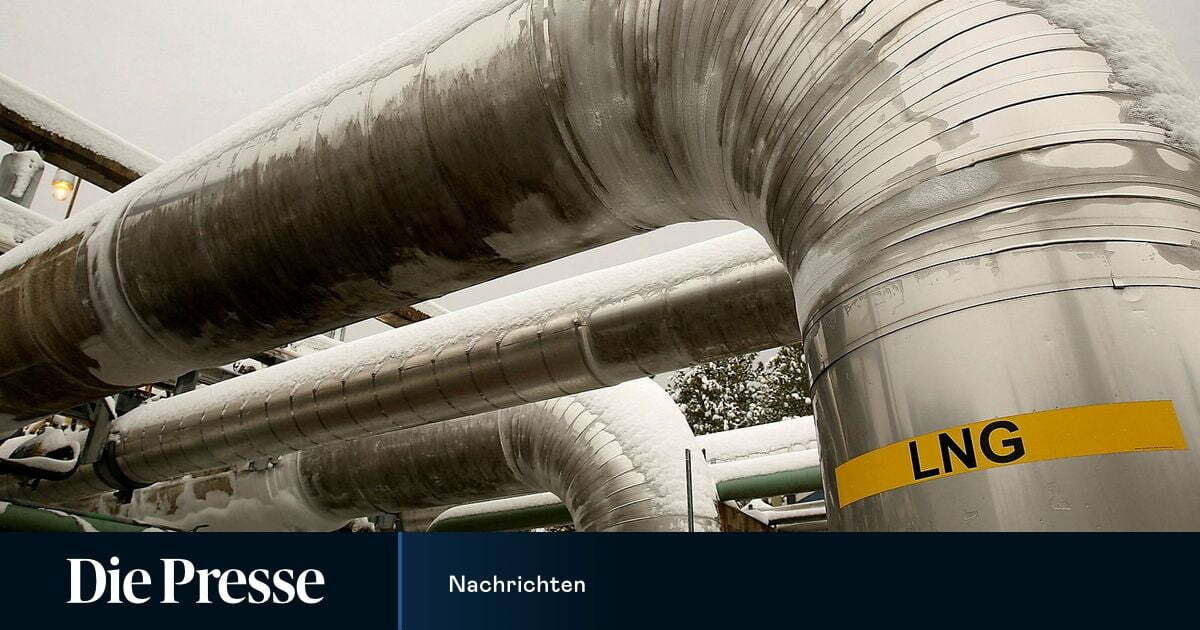By 2030, EU countries want to ensure that they can purchase an additional 50 billion cubic meters. US LNG gas annually.
In the future, the EU wants to buy huge amounts of liquefied natural gas (LNG) from the US to reduce its dependence on energy supplies from Russia. The deal between US President Joe Biden and Commission President Ursula von der Leyen provides that this year alone, the EU will buy an additional 15 billion cubic meters of liquefied natural gas (LNG). In the long run, this amount should rise to as much as 50 billion cubic meters per year.
According to the Commission, this could replace about one third of the current gas imports from Russia. After all, it should already cover a tenth of imports this year.
Dependency on Russia should be reduced
“You know we want to reduce our dependence on Russia,” von der Leyen said on Friday during the performance with Biden in Brussels. This goal can be achieved through investments in renewable energy, but also through additional gas supplies, including LNG supplies. The US commitment to 15 billion cubic meters is a big step in that direction.
For the US, the agreement concluded by Russia’s war with Ukraine is very attractive, as it obliges the EU to purchase large quantities of American LNG by 2030. Washington has been trying to sell more LNG on the European market for years.
On the other hand, the EU has been in a rather poor negotiating position recently. Due to the war in Ukraine, it wants to become independent of Russian energy supplies as soon as possible and, if possible, reduce Russian gas imports by two thirds by the end of the year. Recently, around 40 percent of the gas consumed in the EU has come from Russia.
Kickl criticizes the Deal
Herbert Kickl, chairman of the FPÖ Federal Party, is critical of the US-EU LPG deal. “European customers, and thus also Austrian customers, will pay the bill, as the price of LPG is certainly much higher than that of Russian natural gas, and the cost explosion in this area is perpetuated,” Kickl said on a Friday afternoon broadcast.
Specifically, according to information from Commission circles, the agreement concerns the EU and the US creating the necessary conditions for private companies to be able to export their US LNG to Europe – for example through the necessary permits or infrastructure development.
“The European Commission will work with Member States to store gas on the continent, build more infrastructure for LNG, and take steps to increase gas efficiency,” said Biden.
Orientation to the American spot market
According to the statement, the LNG pricing formula should be based, inter alia, on on the American spot market. The prices there can vary considerably. Commission circles said that prices should match those in long-term contracts to ensure investment security on both sides. In recent years, LNG has been much more expensive than gas delivered via pipelines. According to estimates by the Brussels think tank Bruegel, the EU recently spent around USD 420 million (EUR 382 million) on gas from Russia.
In addition, in the USA, LNG is mainly produced using the fracturing method. The liquid is forced into the ground under high pressure to make the rock more permeable and extract gas or oil. Critics warn of environmentally harmful emissions and a possible threat to groundwater. For example, the US state of California wants to ban fracking from 2024.
Biden’s predecessor, Donald Trump, has been working particularly hard recently to improve the ability to sell US LNG in the European market. 2018’s energy exports were also part of an agreement between then-President of the European Commission, Jean-Claude Juncker, and Trump. At the time, Trump pledged not to introduce any new special duties as yet. In return, Juncker agreed that the EU would facilitate the import of liquefied natural gas from the US and more soybeans from the US. Trump then announced that the EU would be a “very, very large buyer” of US liquefied natural gas. Previously, he repeatedly threatened to introduce special tariffs on European cars.
(APA)

